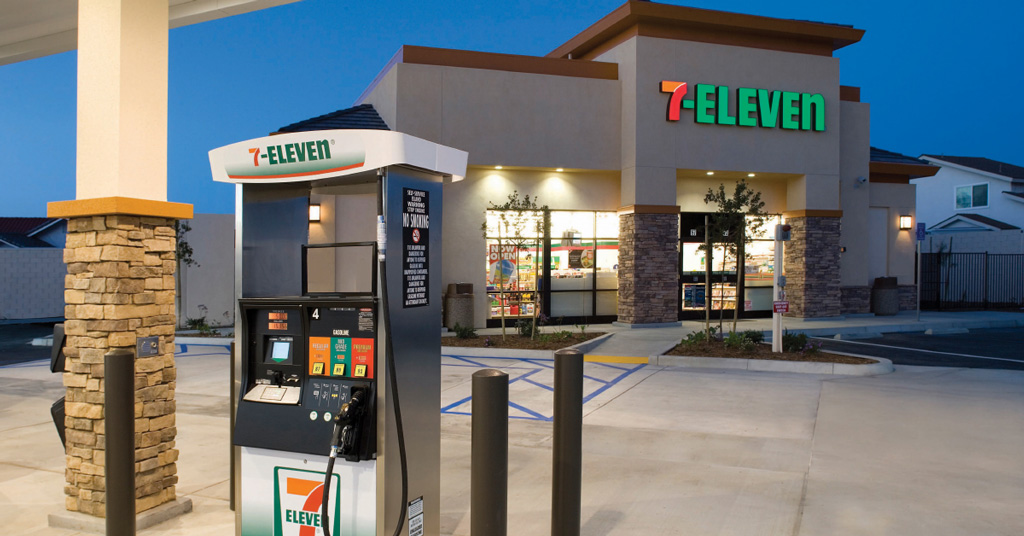My guide to a deglobalising world
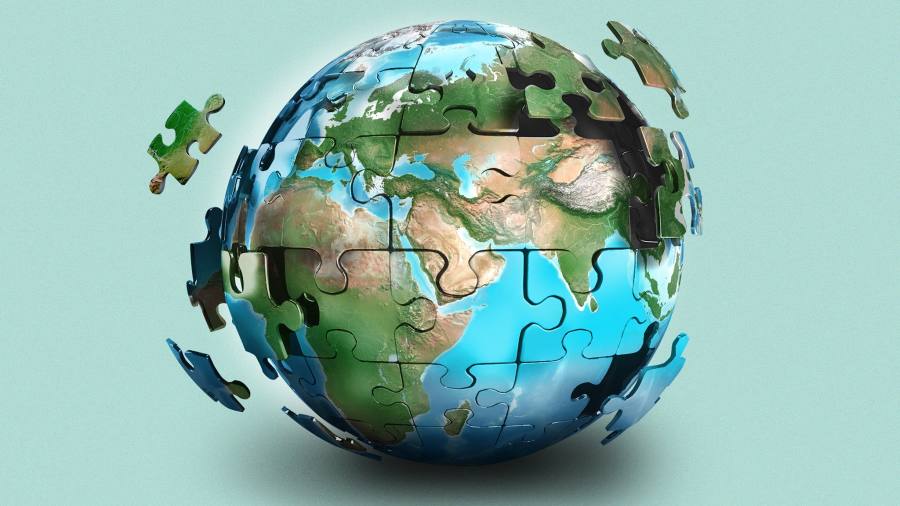
Table of Contents
I’ll never forget an interview I did years ago with the late Richard Trumka, the then-president of the AFL-CIO, America’s largest labour union. Trumka, a tough-talking former Pennsylvania coal miner turned lawyer, told me about a conversation he had had in the 1990s with a Clinton administration official about the fallout of Nafta, which had been ratified in 1993, and the potential impact of China coming into the global trading system.
Trumka was concerned about a sudden flood of cheap labour into the global marketplace, and the effect it would have on American workers’ incomes and lives. “I told [the official] that the deals would kill us, and he agreed.” But the official said that after a while, “wages would start to go up again, and things would even out around the world”. When Trumka asked him how long this process of “levelling out” might take, he answered: “about three to five generations”.
Three to five generations. That’s a century in the lives of the communities and the people in question. Is it any wonder, then, that the average American worker, just as those in many rich countries, has begun to question globalisation? Or that nationalism and populism are on the rise? As Harvard professor Dani Rodrik, one of the few mainstream economists to challenge the received wisdom of his profession in recent years, argued in 2011: “Democracy, national sovereignty and global economic integration are mutually incompatible: we can combine any two of the three, but never have all three simultaneously and in full.”
Today, it’s quite clear that the pendulum of history is swinging away from global economic integration. Some of the changes that go along with this, from market chaos to trade wars to real wars, are extremely worrisome. But beyond the immediate, troubling headlines, there are both challenges and opportunities. Here is my guide to our new era.
1. Globalisation isn’t dead — it’s just different
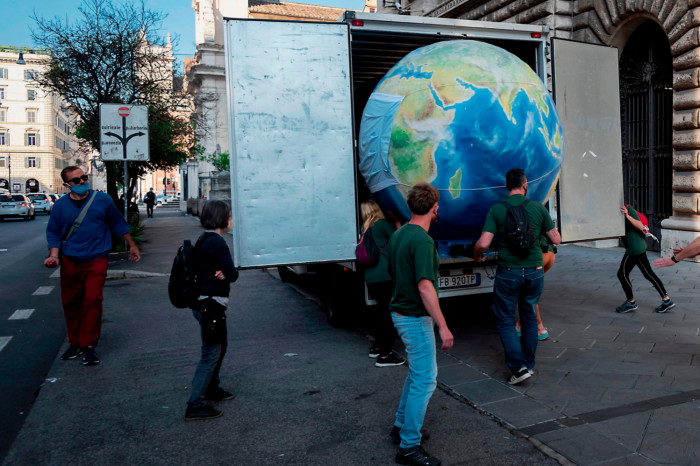
Until quite recently, the very idea that capital, goods, and people might not continue to travel seamlessly across borders was heresy. As former president Bill Clinton said during a 2000 speech: “The question is not whether globalisation will proceed, but how?”
But long before the pandemic or Russia’s war in Ukraine, a host of shifts — demographic, geopolitical, technological — was moving the world away from one-size-fits-all globalisation and towards a more heterodox world of economic policymaking and business models better suited to local interests. A wave of technological innovation is making it possible to move jobs and wealth to a far greater number of places. A generation of millennial workers and voters are pushing politicians and business leaders alike to think about local sustainability rather than just global growth.
Some people feel that there is no middle ground between unfettered, 1990s-style hyperglobalisation and the nationalism (or even fascism) of the 1930s. But there has always been a shifting balance between national interests and global ones; too much of the former results in protectionism or worse. Too much of the latter means that many lose trust in the system.
Today, we are entering a new era of localisation. That doesn’t mean that all things global will fade. Quite the contrary — business, policymakers and society as a whole need a bit more focus on the local to ensure continued buy-in for globalisation. Ideas and information will still flow across borders (although there will be limits on that depending on geographic differences in privacy and data regimes), as the world economy becomes ever more digital. Capital too, will be mobile, although it’s unlikely to be quite as unfettered as it has been in the past. There will be more limits on what financial institutions in liberal democracies can do to fund autocratic governments or degrade the economic wellbeing of citizens in their own home countries, as there should be. There will also be a rethink of trade rules, labour rights, and how to figure both the costs, as well as the benefits, of economic growth into the data that policymakers use to shape our world.
2. All economics will be local
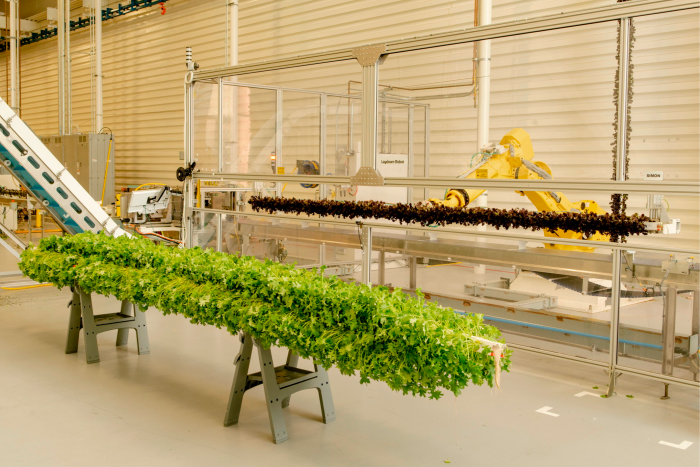
Some years ago, I interviewed a top aide to a senior Democratic senator who told me with amazement about the sense of certainty that there used to be within the party that rural areas and low-density locations simply weren’t worth considering politically. “I remember back in 2016, talking to a friend in the White House who had been travelling and seeing a lot of rural poverty in places like Iowa and Virginia,” said the aide. “He told me, ‘Don’t worry. We’ve got this figured out. We’ve done the models, and it turns out that it’s cheaper to pay people to move to the top 50 cities than to try to create jobs where they are.’”
The contempt inherent in that statement, which assumed that the concept of place and home didn’t matter, was not only insulting, but politically wrong (rural areas got Trump elected, and people are no longer migrating around the US as much as they once did). But both parties now appreciate that place matters. After decades of a “winner take all” trend, in which the majority of prosperity has been located in a handful of cities and companies, look for business and policymakers to be more focused on ensuring that wealth and place are re-moored.
This will come with costs — such as inflation. The old “efficiency” models, which assumed that people, goods and capital would move seamlessly to wherever they were needed, were cheap. Creating more opportunity at home, while still remaining connected to the global economy, will require building more resilient models — that involves better education, infrastructure, higher local wages, and less focus on the short-term bottom line. Efficiency was cheap. Resiliency will cost more. Who pays for it is up for grabs.
But there will also be opportunities in moving from efficiency to resiliency. The US and some other OECD countries that have moved too far towards a debt-driven economy beholden to asset price growth have a chance to rebalance and focus more on middle-income job creation. China, meanwhile, has a chance to build out its own regional ecosystem and correct imbalances that have resulted from the cheap capital for cheap labour bargain between Asia and the west.
3. It’s the politics, stupid . . .
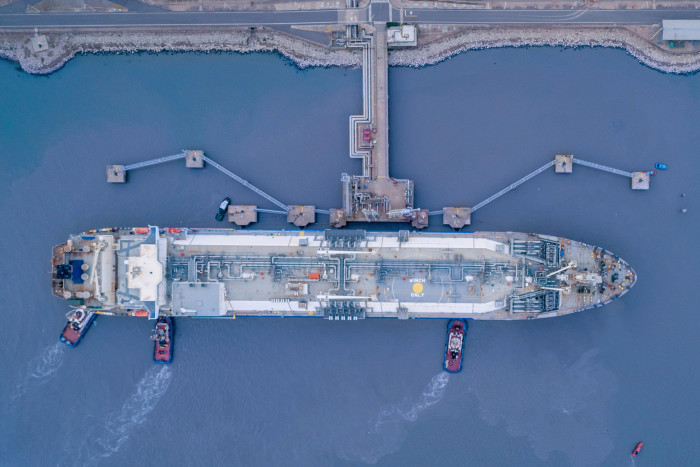
For the past half century, an idea took hold that varying political systems, values and national interests were less important than market forces. But suddenly, amid the pandemic, it mattered that the US sourced the majority of cheap medical masks and key pharmaceutical ingredients from its biggest geopolitical adversary, China. Vladimir Putin’s attack on Ukraine brought into painful focus the fact that Europe bought most of its gas from a country run by an unstable autocrat. And it mattered that voters very often didn’t act like the models predicted they would. Remember the surprises of Brexit? Or Donald Trump’s election?
The good news is that all these developments have finally driven home an important message. If we are to solve the world’s biggest problems — from climate change to wealth disparity — then we have to start thinking outside the black box of conventional economics, and look at the world in a more realistic and holistic way, tapping into other disciplines such as neuroscience, anthropology, biology, law and business. Consider, for example, the common economic assumption that it doesn’t matter where jobs are located, as long as they are created, because people will simply move to them. But as Harvard academic Gordon Hanson, one of the figures within this movement to reimagine free-market capitalism, puts it: “When workers without a college degree lose their jobs, few choose to move elsewhere, even when local market conditions are poor.” One reason for that is that they depend on the family and community ties of place to buffer them in difficult times. Hanson and his colleagues are building new, highly localised models of how economic growth happens in different areas.
4. The age of ‘dual circulation’

That’s the official Chinese state language for the fact that production and consumption will be clustered far more closely everywhere in the future. China announced several years ago that it wanted its own supply chains to be more local, for any number of reasons, including the fragilities associated with far-flung production lines. Those have been in evidence for some time now within western multinationals.
Consider the case of the Boeing 787 Dreamliner, which ran into delays and cost overruns in the late 2000s due to its incredibly complex supply chain, which involved outsourcing 70 per cent of the aeroplane’s component parts to myriad countries all over the world. The decisions were taken after Boeing’s merger in 1997 with McDonnell Douglas, a much more financially oriented company that focused on cost-cutting and minimising financial risk. But sometimes, the decisions that move costs off the balance sheet create real-world risks elsewhere. What’s more, the global trading system itself can be easily gamed by mercantilist nations and state-run autocracies, resulting in deep political divides at home and abroad.
Today’s fractious politics are leading to more regionalisation in the most strategic sectors, such as semiconductors, electric vehicles, agriculture and rare-earth minerals. Beyond this, there are other shifts that have also made it less cost-efficient to outsource globally in some areas. Wages have gone up in Asia. Energy is more expensive. Companies care more about their emissions output.
The upshot is that it has become more expensive and complicated to have far-flung global supply chains. Cheap-labour, low-margin industries such as furniture or textiles are regionalising everywhere, as it becomes more economical to manufacture for local markets rather than toting stuff to the US or Europe through the South China Sea. The growth of additive manufacturing or “3D printing”, which former Google chief executive Eric Schmidt believes could be as disruptive in manufacturing as the iPhone has been in the consumer market, means that complex machinery, cars, and even homes can be made on site.
Finally, climate change is driving localisation. While fixing the problem requires a global view, the practical actions to get there are local. Supply chains in agriculture, textiles and home-building are among the most polluting in the world. The arguments for more community-based farming, an end to fast fashion, and not wasting emissions to tote insulation, concrete or plastics all over the world are clear. While some worry the shift would be too costly, a 2021 BCG analysis found that more localised production networks would add only a 2 per cent mark-up on a $35,000 car, a 1 per cent increase in the price of a smartphone, or 3 per cent more for a $200,000 home. This, coupled with precision data technologies that allow for extremely precise tracking within supply chains (a textile retailer can now identify the provenance of cotton down to a particular farm or field), and a younger consumer geared towards buying fewer things of better quality, will both encourage more localisation and help the planet.
5. Think citizens, not consumers
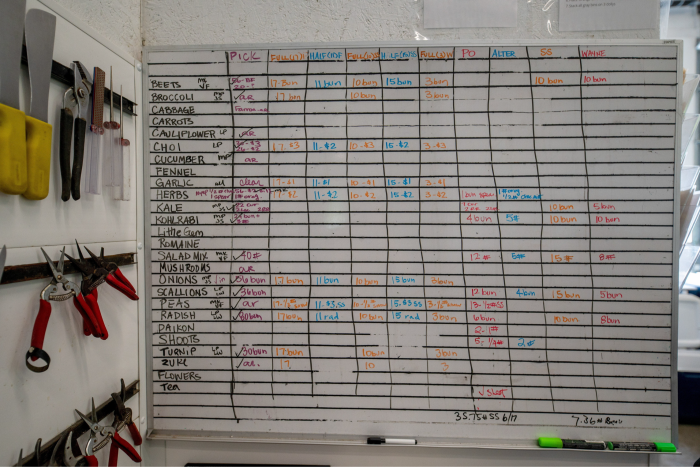
With the rise of the stakeholder capitalism movement, the resurgence of organised labour, and a new crop of US regulators at the Federal Trade Commission, the Securities and Exchange Commission, Department of Justice and in the White House, there is a swing away from consumer welfare to the national wellbeing of citizens. Politicians are pushing business to think about their impact on entire communities, not just consumers. And customers want to know whether the companies they buy from are good local and global stakeholders. In an era in which politics matters more than it has in half a century, Main Street, not Wall Street, will be ascendant.
That means that values, enforced by laws, will begin to matter more. While Adam Smith, the father of modern capitalism, held that in order for free markets to function properly, participants needed to have a shared moral framework, the global economy today is made up of a huge number of nations with extremely different values and political systems tied together in deals that were more often than not crafted and approved by global technocrats rather than elected officials. Ironically, the shift towards global market interests has led to exactly the kind of nationalism that the creators of institutions such as the IMF, the World Bank, and the World Trade Organization wanted to avoid.
But even they weren’t ever entirely in favour of unfettered global capital markets. Like both Keynes and Marx, Hayek, who is as much as anyone the father of “neoliberalism”, believed that the markets didn’t necessarily revert to equilibrium. They needed to be controlled by a “framework” that would connect capitalists and business people around the world, allowing them to float above the socialist interests of labour, or the fascism of the 1930s. As law professor Ernst-Ulrich Petersmann, one of Hayek’s students, put it: “The common starting point of the neoliberal economic theory is the insight that in any well-functioning market economy, the ‘invisible hand’ of market competition must by necessity be complemented by the ‘visible hand’ of the law.” Law is about values, and countries and regions have different ones. From surveillance capitalism to concepts of corporate power, values and the laws that enforce them will increasingly shape markets.
6. Own your own networks
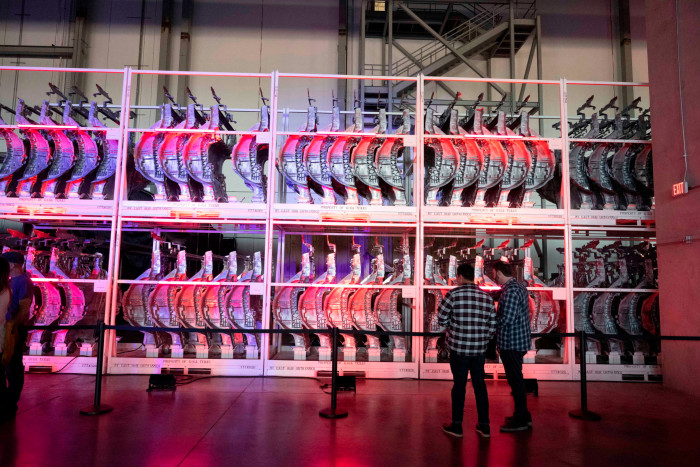
In our new, deglobalising world, countries that can leverage network power to ensure that they have enough food, fuel and consumer demand will be best off. The US is clearly chief in this regard at the moment. But in a more heterodox system, building alliances will be key. From financial networks, to production networks, to social networks, the companies and countries that own their own or work with allies to own them will do best. Vertical integration among corporations, for example, is once again gathering steam, as leaders look to buffer supply-chain disruptions, cut transport costs, and reduce geopolitical risk. Companies from Johnson & Johnson to Volkswagen as well as retailers such as Chanel or Zegna are moving more production in-house, and trying to source and control more raw materials.
Elon Musk is ahead of the curve, producing most of his Tesla in-house after discovering that it was harder to innovate and much more expensive to work with cutting-edge technologies in real time when the supply chains were far away (as author Ashlee Vance sketches in his biography of him). Ultimately, Tesla became committed to sourcing and innovating as much as it could around its battery and power train technologies locally.
Currency decoupling, too, is moving forward, as the weaponisation of the dollar following the Ukraine war has added fuel to China’s desire to become independent of the dollar-based system. Indeed, decentralised technologies of all kinds are growing in popularity. Localised production of wind and solar power will replace fossil-fuel energy systems. Blockchain and other decentralised ways of moving and sharing data, although still imperfect, will advance and spread.
Localism will make sense not only as an economic prospect, but as a political one, too. In his 1996 book Democracy’s Discontent, the political philosopher and Harvard professor Michael J Sandel sharply outlined why decentralisation is crucial for democracy. Encapsulating Woodrow Wilson’s 1912 argument against centralised monopoly powers of all kinds, which was one of the many precursors to the massive economic shifts of the 1930s, he writes: “Restoring liberty meant restoring a decentralised economy that bred independent citizens and enabled local communities to be masters of their destiny, rather than victims of economic forces beyond their control.”
This sums up not only the founding principal of the country, but the core challenge of the new era — how to reconnect global markets and the value created within them to nation states.
Rana Foroohar is the FT’s global business columnist and author of ‘Homecoming: The Path to Prosperity in a Post-Global World’
Find out about our latest stories first — follow @ftweekend on Twitter





